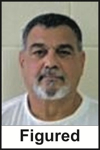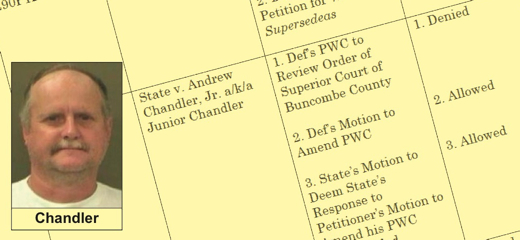Rascals case in brief
In the beginning, in 1989, more than 90 children at the Little Rascals Day Care Center in Edenton, North Carolina, accused a total of 20 adults with 429 instances of sexual abuse over a three-year period. It may have all begun with one parent’s complaint about punishment given her child.
Among the alleged perpetrators: the sheriff and mayor. But prosecutors would charge only Robin Byrum, Darlene Harris, Elizabeth “Betsy” Kelly, Robert “Bob” Kelly, Willard Scott Privott, Shelley Stone and Dawn Wilson – the Edenton 7.
Along with sodomy and beatings, allegations included a baby killed with a handgun, a child being hung upside down from a tree and being set on fire and countless other fantastic incidents involving spaceships, hot air balloons, pirate ships and trained sharks.
By the time prosecutors dropped the last charges in 1997, Little Rascals had become North Carolina’s longest and most costly criminal trial. Prosecutors kept defendants jailed in hopes at least one would turn against their supposed co-conspirators. Remarkably, none did. Another shameful record: Five defendants had to wait longer to face their accusers in court than anyone else in North Carolina history.
Between 1991 and 1997, Ofra Bikel produced three extraordinary episodes on the Little Rascals case for the PBS series “Frontline.” Although “Innocence Lost” did not deter prosecutors, it exposed their tactics and fostered nationwide skepticism and dismay.
With each passing year, the absurdity of the Little Rascals charges has become more obvious. But no admission of error has ever come from prosecutors, police, interviewers or parents. This site is devoted to the issues raised by this case.
On Facebook
Click for earlier Facebook posts archived on this site
Click to go to
Today’s random selection from the Little Rascals Day Care archives….
Click for earlier Facebook posts archived on this site
Click to go to
Today’s random selection from the Little Rascals Day Care archives….
Other victims of the ‘decade of moral panic’
Oct. 24, 2011
It’s almost obscene to consider the Edenton Seven as lucky, but at least they eventually went free.
Mark Montgomery, the Durham appellate lawyer who represented Bob Kelly, cites two clients still in prison after being convicted of bizarre sexual abuse during the decade of moral panic, 1984-94.
“Junior Chandler was a driver for a (Madison County) day care. The prosecutor (the same who prosecuted Bob Kelly) alleged that Junior would drive off his route to a park by a river, strip the children of their clothes, troop them down to the river, put them in a rowboat, commit various sexual acts, put them back on the bus and take them home.
Based almost exclusively on hearsay and expert ‘vouching,’ Junior was convicted in 1987, and sentenced to two life sentences.
 “Pat Figured was supposed to have driven from North Raleigh to Smithfield over his lunch hour to stick a screwdriver into the anal openings of his girlfriend’s two children. (UNC Chapel Hill) psychologist Mark Everson testified that the children ‘had been abused by Mr. Pat Figured.’ Pat was convicted in 1993 and sentenced to life in prison.”
“Pat Figured was supposed to have driven from North Raleigh to Smithfield over his lunch hour to stick a screwdriver into the anal openings of his girlfriend’s two children. (UNC Chapel Hill) psychologist Mark Everson testified that the children ‘had been abused by Mr. Pat Figured.’ Pat was convicted in 1993 and sentenced to life in prison.”
Here is the North Carolina Supreme Court’s 2010 decision that kept Andrew Chandler Jr. a/k/a Junior Chandler in prison.
And here is a thorough history of Pat Figured’s case.
The fate of Chandler and Figured is surely appalling. However, Montgomery adds, “For each defendant who went to trial and was convicted of sexual abuse, dozens more pled guilty to a lesser charge in order to avoid trial for crimes that are difficult to defend against and carry draconian penalties.”
You had to have been there (or did you?)
Sept. 25, 2013
“Peer group pressure… is a factor that should be considered when there is an allegation of sexual abuse involving multiple victims. Children in Edenton who never attended the day care, but who had peers who attended, claimed to have been abused at the day care.
“During her testimony for the defense, Dr. Maggie Bruck described a scientific study in which two actors went into a classroom of 28 children to give a talk. During the talk one of the actors knocked a large birthday cake off a piano. Seven children had been removed from the room and did not observe the event. Later when the children were interviewed six of the seven children who had not been present not only claimed to have been there but described the event as if they had been present.”
– From “Evidence Issues and ‘Lessons’ from State v. Kelly: Litigation of Allegations of Child Sexual Abuse” by Jeffrey L. Miller and W. Michael Spivey, presented at the 6th annual North Carolina Criminal Evidence Seminar, UNC School of Law (April 16, 1993)
Can we cope with seeing wrongful convictions?
 Feb. 20, 2015
Feb. 20, 2015
“Exonerations, which were once exceedingly rare, have become regular features of the American justice system. The National Registry of Exonerations records 1,535 exonerations nationwide (including Bob Kelly and Dawn Wilson) since records began in 1989….
“The 125 wrongful convictions thrown out in 2014… might seem paltry compared to the estimated 1 million felony convictions per year, but the number of wrongful convictions is likely far higher. Many jurisdictions don’t devote the same level of resources towards exonerations that North Carolina does (with its Innocence Inquiry Commission), and even then the process can be achingly slow.
“For a justice system that exalts due process and the presumption of innocence, any wrongful conviction represents a serious breakdown of justice. Even a handful of high-profile wrongful convictions can ripple throughout the public consciousness, undermining confidence in the system. ‘The country is having to psychically cope with conclusive evidence that we make, with some regularity, errors in criminal trial outcomes,’ said (Mary Kelly Tate, director of the University of Richmond law school’s Institute for Actual Innocence).”
– From “Guilty, Then Proven Innocent” by Matt Ford at The Atlantic (Feb. 9)
N.C. justices to Junior Chandler: Drop dead
 Oct. 5, 2012
Oct. 5, 2012
Because today’s North Carolina Supreme Court decision on Junior Chandler’s appeal comprised three separate parts, I didn’t fully comprehend it.
“Is this good news or bad?” I emailed Mark Montgomery, Junior’s appellate lawyer.
“The worst,” he replied. “We’re out of court.”
Yes, this is the worst – the absolute, inexcusable, shameful worst.
The justices have denied Junior Chandler, probably the last still-imprisoned victim of the multiple-offender, multiple-victim ritual-abuse day-care panic, his final chance for a new trial. After 25 years behind bars – more than all the Little Rascals defendants combined! – he faces only more of the same.
If I were a lawyer, maybe I could understand how the North Carolina Supreme Court arrived at its decision.
How it was unmoved by Junior’s feeble representation early on.
How it was uninterested in the epochal progress made in limiting expert testimony.
How it was all too eager to find petty justifications for validating a prosecution rotten at the core.
But probably not.











0 CommentsComment on Facebook